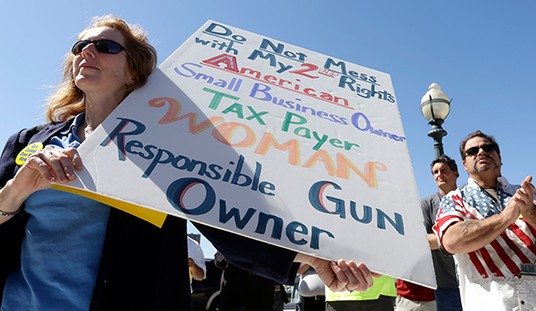In their zeal to convict Kyle Rittenhouse on murder charges, prosecutors made a mess of Wisconsin self-defense laws, and many on the Left have embraced the misinformation. On today’s Bearing Arms’ Cam & Co, we’re going to do our best to set the record straight on the right of self-defense, starting with the claim by prosecutor James Kraus that “everyone takes a beating” now and then, and a mere beatdown doesn’t give you the right to fire your gun in self-defense.
This was a running theme for prosecutors in the Rittenhouse trial; presenting the idea to the jurors that Rittenhouse wasn’t acting lawfully in self-defense even if he was being attacked, because he had other options available to him besides lethal force.
“…he was too cowardly to use his fists” is one of the worst arguments against self-defence I could imagine the prosecution using. And yet, they used it. pic.twitter.com/mlhCp7fwmY
— Viva Frei (@thevivafrei) November 15, 2021
According to Kraus, Rittenhouse was supposed to clock Joseph Rosenbaum has he lunged for his gun, even though that would have meant losing control of the rifle by taking his hands off of it, because he was apparently supposed to understand that Rosenbaum might have wanted to rough him up a little but wasn’t going to try to take his life (though he allegedly threatened to do just that earlier in the evening according to Rittenhouse and eyewitness Ryan Balch).
Here’s what the actual Wisconsin statute says:
A person is privileged to threaten or intentionally use force against another for the purpose of preventing or terminating what the person reasonably believes to be an unlawful interference with his or her person by such other person. The actor may intentionally use only such force or threat thereof as the actor reasonably believes is necessary to prevent or terminate the interference. The actor may not intentionally use force which is intended or likely to cause death or great bodily harm unless the actor reasonably believes that such force is necessary to prevent imminent death or great bodily harm to himself or herself.
Remember, after Rosenbaum began chasing Rittenhouse, the teenager turned and tried to run away. He tried to avoid physical conflict with Rosenbaum. But prosecutors maintain that, in the split-second that Rittenhouse had to respond to Rosenbaum lunging forward, it was unreasonable to believe that the angry and irate man wanted to cause him great bodily harm or death. Instead, he was apparently supposed to allow Rosenbaum to crash into him and maybe take a few swings to better determine his intentions.
Then there’s Assistant District Attorney Thomas Binger’s assertion that Rittenhouse “lost his right to self-defense” by having a gun on him, which is simply inane. You see the Wisconsin statute noted above. Is there anything in there about “armed citizens do not have a right of self-defense against unarmed citizens”? Of course not, because that would be insane. In many cases, you might not know for certain whether your attacker is armed, but even an unarmed suspect can pose a threat to life and limb. In fact, according to the FBI there are more people killed with fists and feet used as the murder weapon than are murdered by individuals wielding rifles. But according to Binger, there’s simply no way an armed person can reasonably believe that their life is in danger from an unarmed individual.
Heck, according to Binger there wasn’t even reason for Rittenhouse to fear for his life when Gaige Grosskreutz approached him and began to point his Glock at the teen, because Rittenhouse was carrying an AR-15. Binger told the jury that a guy with a handgun couldn’t pose a real threat to a guy with a big scary rifle, which is kind of like saying you shouldn’t be afraid of plowing your SUV into a sedan at 60 mph because you’ve got a bigger vehicle. Threats can be armed with a handgun, a rifle, a chain, a skateboard, or even bare hands. What matters is their intention, not merely the stuff in their hands.










Join the conversation as a VIP Member